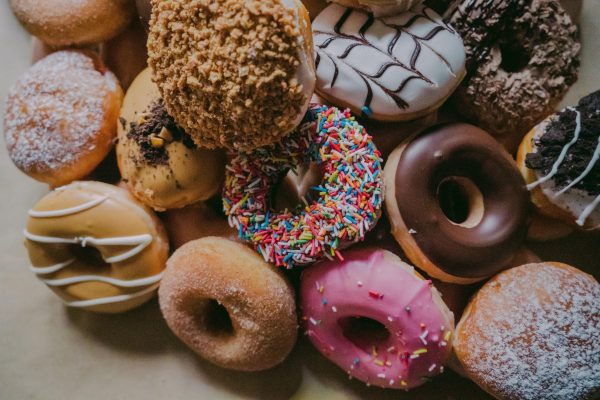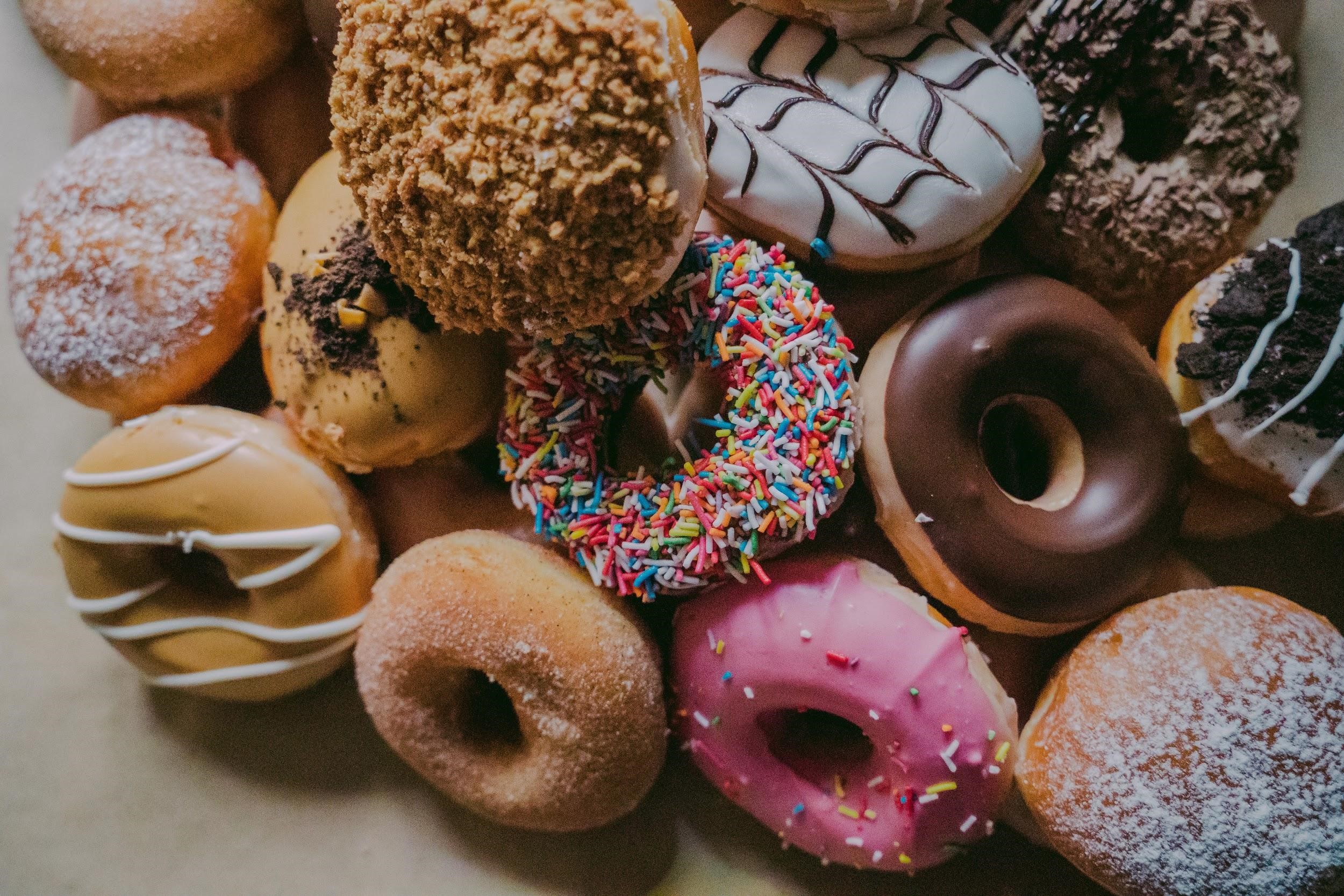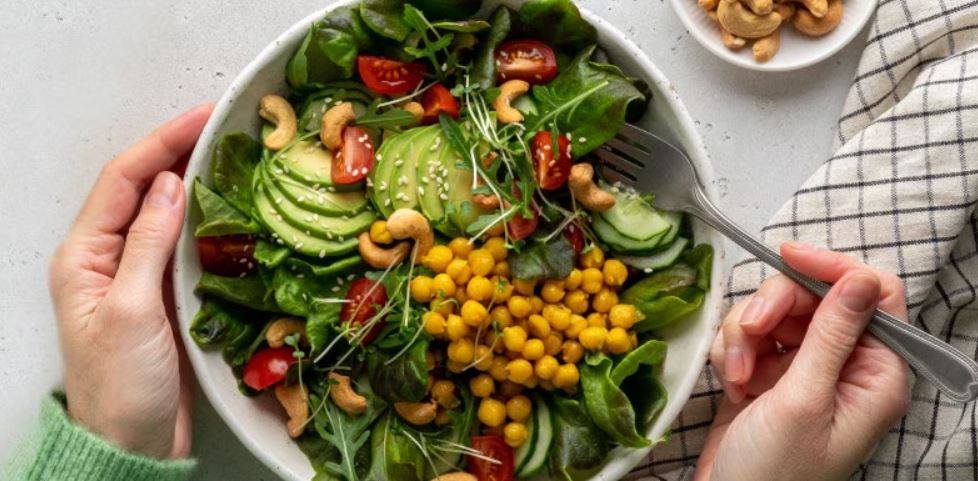
Photo by Rod Long on Unsplash
Have you heard of the “Freshman 15”? It’s the theory that when someone enters their first year of higher education they gain some weight, an average of 15 pounds. Well, there’s a new 15 in town! The “Quarantine 15.”
Many medical professionals believe it’s highly likely that people will have gained weight during the quarantine. This could be due to many people indulging in unhealthy eating habits while in lockdown.
Let’s take a look at what could have happened…
Before we begin, let’s acknowledge another source of potential weight gain…

Photo by Jelmer Assink on Unsplash
Under the lockdown restrictions, the movement for many was limited.
For example… gyms being shut down will have limited the physical exercise classes people could take, and many did not have access to the equipment they were accustomed to.
But it goes further than that. Perhaps you drive to work every day, but walk 10 minutes to the office from your car. Perhaps you climb 3 flights of stairs. Perhaps you run to catch the train.
This all adds up. Plenty of people could be engaging in upwards of 25 minutes of cardiac activity a day without realizing it. All of that was gone, but many were still be eating the same amount of food.
Or perhaps, even more…
We had to break the monotony of quarantine.

Photo by niklas_hamann on Unsplash
There is a moment in the Jim Carrey movie The Grinch, where he stuffs with face with snacks and declares:
“Am I just eating because I’m bored?!”
It’s a very funny moment, and comedy often resonates with us when it shines a light on truth.
While it may not be a conscious decision, many of us eat as a means of breaking boredom.
Boredom is experienced when our senses go for a period of time without being stimulated. Eating is a simple activity that stimulates our senses, namely taste.
There have been various studies conducted that have concluded this, including this one referenced in Discover. Scientists divided participants into two separate groups. Each group spent an hour watching the same 85-second long tennis clip on repeat.
While watching, one group was given the popular candy, M&M’s, to eat, while the other was given a small electric shock device to self-administer. They concluded:
“Because both types of stimulation were popular, the scientists concluded that people eat when bored to break the monotony, rather than for the pleasure of food itself.”
It makes sense then, that while under lockdown restrictions, we experienced less day-to-day stimulation and experienced boredom more often. To break this, people turned to food.
With less physical exercise available, weight gain was inevitable.
Food may have alleviated boredom… but why didn’t we turn to salads and green smoothies to help?

Photo by Yarden on Unsplash
Most food can. But we feel a special attraction towards sugar-laced foods. You may think it’s because they taste good. But it’s actually much more than that. It’s that they make us feel good.
When we consume sugar several actions take place within our body. One of which is the release of endorphins such as serotonin and dopamine.
These stimulate the “reward center” in our brain, allowing us to feel happier, and sometimes even calmer in the wake of sugar consumption.
This is especially relevant as many speculate that our lockdown circumstances pushed many towards anxiety and depression.
Sugar offered us an escape from not only the monotony of quarantine, but also its inherent sadness.
So why don’t I just stop eating sugar?

Photo by Sharon McCutcheon on Unsplash
While many have left quarantine for the most part, we shouldn’t assume that we will stop turning to sugar… That’s far easier said than done.
Our body’s blood sugar levels naturally start at the fasting glucose level. When we consume sugar, this level rises. Our body produces insulin in an attempt to curb the blood sugar level, and slowly restores it to its original state.
At least, this is how it would work in a perfect world.
Many of our foods are packed with excess sugar, and we’re not just talking about sweets. Canned fruits, white bread, granola… the list goes on.
The American Heart Association’s recommended sugar intake over the course of a year is roughly 22 lbs.
However, the average American consumes roughly 142 lbs over this time! That’s more than 500% over the recommended amount.
Our bodies are not equipped to handle the ridiculous amount of sugar we ingest. As a result, our blood sugar levels do not gently rise, but violently spike.
Our body has to produce more insulin in an attempt to control these spikes. So much so that the insulin doesn’t simply bring us to our fasting glucose state… but far below it. This is what is known as a sugar crash.
Once we’ve crashed our body starts to crave another dose of sugar in an attempt to bring itself into its fasting state. It disengages the prefrontal cortex of the brain, the part that controls our inhibitions, and we start to stuff ourselves with more sugar with no regard for the health impact.
Our blood sugar spikes, insulin is released, and the cycle starts again.
So how do we free ourselves from the clutches of this sugar cycle? Crave Stop by Redd Remedies can help!
Self-discipline can only go so far. With excess sugar everywhere we look, even the most diligent among us will have a difficult time not indulging every now and again.
Crave Stop was created for those who need a little extra help. This award-winning, all-natural supplement will help you control sugar cravings and manage a healthy appetite! Come into Sunrise Health Foods to start building a lifestyle that will banish your quarantine 15!



